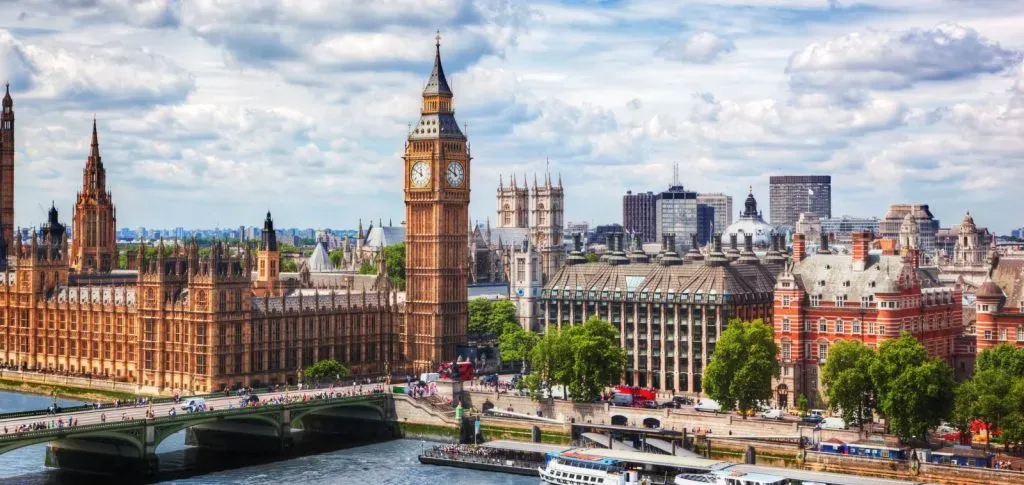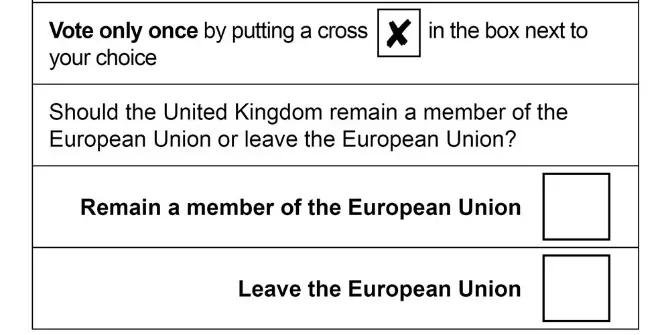
There is a lot of noise around aspects of the Brexit negotiation but very little fact, planning or process discussion. Here we try and answer some of the fake news and myth with a dose of reality rooted in fact.
If Britain leaves the EU without a deal, would the French will stop the flow of goods between Dover and Calais!
The leader of the Calais region of France has stated unequivocally that this will not be permitted. The entire Calais region of France depends on the revenue generated by this port. Britain is already in talks with other European ports in Antwerp and Zeebrugge who are of course, extremely hungry for the business so any issues created in France would be extremely self destructive for the region. It simply is not going to happen.
How will we trade if there is no deal with the European Union?
Britain, is a member of the WTO and has existing schedules in place with the world trade organization. These will come into effect in the event Britain leaves the EU without a deal. There are a small number of objections against specific aspects of these schedules. For example, the USA has some concerns. However, the majority of these concerns are BECAUSE the British government seem to be negotiating a deal which seem to keep Britain in the European single market preventing reciprocal trade deals. These are objections are limited and in many cases, solve themselves in the event of a no deal exit.
Of course, these schedules vary from time to time as the national interests of members change. The entire purpose of the WTO is to facilitate trading relationships and to a great extent, free trade agreements are not seen as fair nor free by the broader community. Where the WTO want to create free and fair global trade, exclusive ‘free market’ agreements are by their nature, anything but free as they are limiting and prejudicial to all other members.
Would leaving the EU increase the price of goods in the United Kingdom?
Leaving the EU gives Britain the ability to either source products from the EU or anywhere else in the world. Britain sets the tariffs and could in decide to unilaterally remove tariffs on goods in the best interests of the British people. In addition, purchasing outside of what is, in effect, a captive market, allows procurement based purely upon market based considerations such as price and quality. Tariffs on food and agricultural products are extremely high where a country wants to source product from outside of what has become, a captive market. Britain is an extremely important market for EU agriculture. The agricultural lobby is the most powerful lobby in the EU. It is extremely unlikely that EU members would want Britain to leave without a trade deal but if Britain was to do so, there is incredible motivation to solve these problems as WTO conditions are far more beneficial to a UK making decisions on sustainable economic grounds as opposed to politically led sourcing.
Will there be a massive tailback of lorries into the port of Dover?
Of course, with no planning and no solutions implemented problems could occur. However, no one is proposing doing nothing. British ports receive enormous quantities of freight from all over the world. Some of the container ships from China are vast and can each contain 20,000 full size containers. Yet there are no delays. This is because, for the last 20 years the entire world has been working on the basis of electronic customs systems and document filling rather than archaic paper based documentation. In most cases, documents are filed before the ship is even in port and can be pre cleared. The move away from a border bottleneck has been happening for a very long time and Britain has the opportunity to seize the initiative and become one of the most business friendly jurisdictions in the world.
As anyone that works within global supply chain systems can attest, electronic systems, combined with tracking, are vastly more effective than an army of human observers looking in the back of a lorry.
The Irish do not want a hard border so we have to have this bizarre backstop arrangement proposed by Theresa May, effectively removing Ireland from the United Kingdom entirely in perpetuity?
WTO rules do require that proper tariff control is implemented by member nations so that the published schedules can be managed effectively. This is often taken to mean a hard border but that is not necessarily the case. It is important to remember the purpose of the WTO. It is exists to facilitate and improve trade between members. It is extremely flexible in terms of achieving that end and indeed, one of the fundamental articles of the WTO allows that any of the individual articles can be disregarded if supported by a vote of the members. However, though Britain could have applied to do this, is simply isn’t necessary for the same reason mentioned in the previous question concerning ports and freight. Unfortunately, the issue has been very effectively weaponized by EU negotiators playing upon the concerns of the Irish people who are understandably misunderstanding what is mean by this customs border. They do not want a return to a militarized hard border in the form existent in the past. This was simply never going to happen and should have been managed, mitigated and solved. However, Theresa May has utterly failed to do anything more than mumble vague assurances about technological solutions when what people needed to see was firm leadership and a real solution to stop the sort of hysterical escalation and obfuscation that has been so prevalent around this issue.
The UK will break up as a result of the Brexit vote.
This hysteria surged directly after the vote but subsided somewhat until the last month or so. The reality is that Scotland and Ireland do the vast majority of their trade, not with the EU, but with Britain. It is deeply ironic that those peddling this hysteria are usually the ones that are jumping up and down in faux panic using the excuse that these countries will have to leave because of their trade with the EU, while completely neglecting to mention the far greater proportion of their overall trade, which is within the UK. It would be pretty suicidal for the economy to fail to trade within what is now, effectively a single country with no tariffs in favor of a foreign jurisdiction with greater shipping costs.
I don’t believe that anyone voted to be poorer?
This is primarily more a limitation on the part of the commentator than Brexit itself. The reasons for voting to leave the EU are extremely broad. There are indeed many people that want out of this increasingly undemocratic and ideological organization at any cost. From reasons as simple as not wanting control of their lives handed over to anyone they cannot directly vote to removed to free movement, national sovereignty and now, the planned militarization of the EU. Something that in 2016, they were told would never happen. Some simply believe that the EU is a dangerous and elitist organization that has an agenda rooted in seizing power and taking rights out of the hands of voters. So for many, the vote to leave is deeply moral and absolutely necessary. They may believe, wrongly in our view, that this may make them poorer financially but they would do so regardless and having reached that conclusion, that position is very unlikely to change.
In a recent ComRes poll, two thirds of British people agreed that they want to see Britain become the lowest taxing and most business friendly country in the world after leaving the EU. One of the largest majorities on any current issue (upremeleader.eu post 7th December 2018. That journey is seen differently by almost everyone but many would happily accept that such a vision may need investment. Who wouldn’t accept short term challenges on the basis of it being an investment in Britain’s long term economic sustainability and an end to boom and bust.
While, in reality, there need be absolutely no economic downturn as a result of leaving the EU. The lack of visionary leadership and the delay and uncertainty it is causing is itself creating risk.
It seems that no one seriously believes that the UK will economically benefit from a well managed exit. However, most seem willing to leave even if that means taking a hit in the short term, in order to gain long term benefit.
Brexit has the potential to be an enormous success for Britain’s economy as a result of new trade free from EU restrictions. With vastly increased competitive capability and reformed economic policy the future Britain has much to gain and for many, that is a future worth investing in.
You need to vote again because we don’t like your answer.
What would the question be? Because the legally binding referendum already took place in accordance with British Law. The electoral commission actually amended the question as it was initially presented by the government precisely to avoid any chance of confusion and present a very clear question to the British People. They made sure that the question was unequivicol, To LEAVE the EU entirely, or STAY in the EU. Was there truly anyone that struggled to understand the absolutely clear difference presented on the ballot form as shown below.

The question could not have been clearer. Notice that there is no conditionality within the question. Because a referendum cannot be run on the basis of conditionality, ambiguity of obfuscation. No, that came after the vote as a dark cabal of globalists went into abject panic and immediately set about trying to undermine democracy in Britain. So there is no mention of a deal or any semblance of a deal.
So what would the question be when it comes to another referendum? The regulations surrounding referendum actually prevent the government going back to the people on the same question (and some say even the same matter) for at least 2 years. People voted in the largest democratic event in British history. A leaflet explaining what ‘LEAVE’ meant, went to every home in the country. What some antidemocratic extremists are suggesting is NOT a people’s vote. It is quite the opposite. It is a case of the ruling classes and corrupt lobbying money being unhappy with the outcome of a legitimate vote by the British public and trying to undermine democracy in the UK to achieve their ends. There is NO basis upon which a second vote could legitimately be held on this matter. Just this week George Soros threw another half a million pounds at causes trying to further undermine Britain and force another vote. The same George Soros whose organisation has a directory list of ‘friends’ in the European parliament that his people are told they can count on for support.
When did Britain decide to become an undemocratic banana republic that is able to ignore the outcome of a democratic vote because those in power decide they don’t like it?. What a dangerous precedent it would set. It would undermine rights that have taken over a thousand years to build and would completely delegitimize Britain and its governments for generations. Where would it stop? Despite the massive civil unrest that would make the ‘Gillet Jaune look like a tea party and cost enormous amounts of money to manage. Leave campaigners would immediately demand their own follow up referendum and on and on it would go, destabilising markets, democracy and Britains standing in the world.
However most politicians understand the full implications of such a horrific act again the people and in reality, despite the overt attempts to pervert the outcome of the referendum, no party has yet been so foolish as to be the first to tell the British public that their vote really doesn’t matter. If Britain were to rerun votes where one party or another was aggrieved by the result or contents of a campaign, Britain would not have had one legitimate government for the last 40 years.
The question could not have been clearer. Notice that there is no conditionality within the question. Because a referendum cannot be run on the basis of conditionality. So there is no mention of a deal or a type of deal. So what would the question be when it comes to another referendum. The regulations surrounding referendum prevent going back to the people on the same question (and some say even the same matter) for at least 2 years. People voted in the largest democratic event in British history. A leaflet explaining what ‘LEAVE’ meant, went to every home in the country. So what a some antidemocratic extremists are suggesting is NOT a people’s vote. It is quite the opposite. It is a case of the ruling classes and corrupt lobbying money being unhappy with the outcome of a legitimate vote by the British public and trying to undermine democracy in the UK to achieve their ends. There is NO basis upon which a second vote could legitimately be held on this matter.
When did Britain decide to become an undemocratic banana republic that is able to ignore the outcome of a democratic vote because those in power decide they don’t like it. What a dangerous precedent it would set. It would totally undermine a right that has taken over a thousand years to build and would completely delegitimize Britain and its governments for generations. But most people understand the full implications of such a horrific act and in reality, despite the overt attempts to pervert the outcome of the referendum, no party has yet been so foolish as to be the first to tell the British public that their vote really doesn’t matter.
